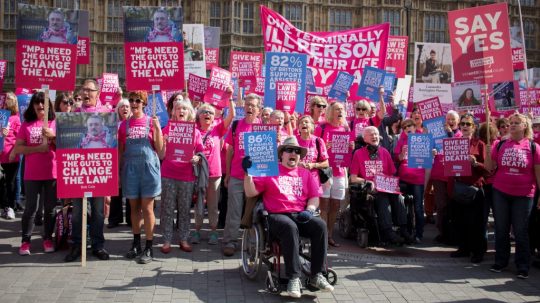RightsInfo is taking a trip across the Channel to visit the European Parliament, the European Union’s law making body, for the March plenary session. Remember, the European Union has nothing to do with the European Court of Human Rights – see our mythbusters. However, European Union law does impact on our rights in the UK – see this explainer.
Plenary sessions are the busiest time of the European Parliament, when MEPs come together to debate and make decisions on EU law. We will be reporting live on human rights-related topics that come up, including on a debate about a new EU Directive that aims to establish procedural safeguards for children accused of crime.
A potential new law is being debated later today. If passed it will affect the 1 million children every year who are involved in criminal proceedings in the EU.
Among many things, the law aims to ensure that when accused of crimes:
• children are always assisted by lawyers
• children can have contact with their parents
• children are questioned in a manner appropriate to their age and mental capacity
So follow us on Twitter and Facebook, and keep an eye on this post, to keep up to date with the latest!
LIVE UPDATES
On the way… brrrr
#RightsInSnow pic.twitter.com/mtBGJ0R82S
— RightsInfo (@rights_info) March 8, 2016
Charlotte and Hayley have arrived…
Exc-ightsInfo! Hello from Paris, can't wait to get to Strasbourg…@HayleyChapman5 @charlottejyn pic.twitter.com/YrvjtHnWvl
— RightsInfo (@rights_info) March 8, 2016
22.10 Debate about to start.
22.15 Basic standards are “absolutely necessary” to target the “major discrepancies” between states.
22.17 More reference to the “wide discrepancies” between the protection of children across the EU.
22.18 Nathalie Griesbeck for the Liberals: Children are the “most vulnerable” members of our society. This Directive is trying to “preserve the adults of the future”
“This is something we would wish to support with all our strength.”
22.20 Jean Lambert for the Greens: “Lingering concern about the proportionality test in Article 6(6) and how it will be implemented in practice. However we do believe that this is overall a good Directive.”
22.21 Gerard Batten for EFDD: “The UK won’t be adopting this Directive for 2 reasons: 1) we have an opt out, and 2) we have such safeguards under our own law.”
“How can the legal systems that do not recognise such basic rights be considered equal to the ones that do?” – the trouble with the doctrine of mutual recognition.
22.22 M. LePourtant: “I think the criminal justice system should be part of national sovereignty. That’s why I don’t like this Directive.”
“Hands off our criminal justice system which doesn’t need the kind of mediocrity which is being put forward here.”
22.29 Julie Ward, S&D: Made incisive points about considering volunteering and other activities that can keep children out of the justice system.
22.30 “The Czech public do not want to have a situation where children commit a serious crime such as murder they don’t want them to keep their anonymity. I just believe this has too broad a scope”.
22.32 “I believe it is important that a child is not disadvantaged by their age.”
22.33 Vera Jourova for the Commissioner: “The Directive is another important contribution for the rights assuring a fair trial”.
“What we see as the main added value of this proposal: it introduces measures which are in the best interests of the child. When a child commits an act they are punished by society under penal law, but that same society that punishes him must not also deprive him or her of the opportunity to start over again.”
22.35 Caterina Chinnici: “We want to send out a message with regard to procedure, equality in procedure, and providing equality for all in society.”
“We have to take into consideration the vulnerability of this group…providing training is very important in terms of creating some sort of harmony between procedure”.
Wednesday 9th March
Votes are in: the Directive has been passed with 613 votes to 30.
There were 56 abstentions
Caterina Chinnici (S&D, IT) who steered the Directive through Parliament said “the text presents a catalogue of rights and guarantees as a common European model of fair trials for minors in which we strike a balance between the need to ascertain responsibility for crime and the need to take due account of minors’ vulnerability and specific needs”
Watch Caterina Chinnici discuss the issue in more detail







